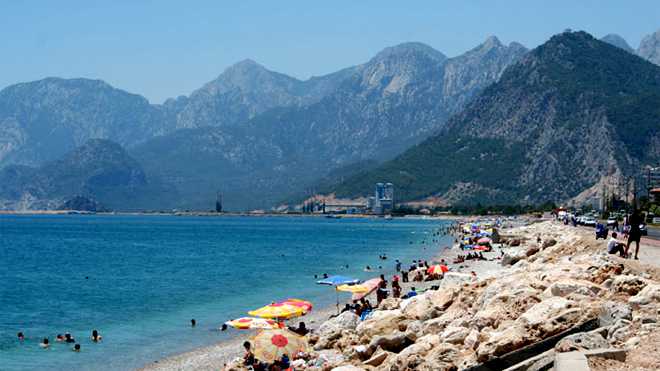By MARC CHAMPION
ISTANBUL—In Turkey and beyond, the release of U.S. diplomatic cables on website WikiLeaks has sparked a round of conspiracy theories.
Turkish leaders appear convinced that state actors, in particular the U.S. itself or Israel—rather than Julian Assange of WikiLeaks—are behind the release of U.S. State Department cables, whose contents have embarrassed leaders around the globe.
The skepticism about WikiLeaks’ independence is widespread and appears to be rooted in sheer disbelief that the world’s most powerful nation can’t stop its secrets from spilling onto the Internet. That sentiment pairs with a willingness to believe the worst of Israel. Neither is limited to Turkey.
“Undoubtedly, the Western governments and the Zionist regime were involved,” said Iran President Mahmoud Ahmadinejad earlier this week.
A Timeline of WikiLeaks
Key releases, legal battles and other significant moments in the history of the website and its founder, Julian Assange.
View Interactive
Highlights from Leaked U.S. Cables
Read quotes from some of the leaked documents.
More photos and interactive graphics
Meanwhile, on Wednesday, Russia’s Prime Minister Vladimir Putin offered up on CNN’s Larry King Live that “experts” believe WikiLeaks is being deliberately “inflated” by others, to be used for political purposes at a later date.
“Assange clearly has very well-informed high-level protectors who aren’t for the first time ‘leaking’ strictly secret documents to him by the ton. There is no doubt that these protectors have their own, far from altruistic, goals,” wrote the official Rossiskaya Gazeta on Thursday, surmising that U.S. officials were trying to revive a “rusted-through American bureaucratic machine.”
“It could be Barack Obama himself,” the newspaper said.
“No one in the United States government with a brain in their head wanted to see this happen,” said State Department spokesman P.J. Crowley. “This is a crime, not grand strategy. We will work through it, but it has done substantial damage.”
Turkish conspiracy theorists have long speculated that Israel is seeking to get rid of an Islamic-leaning Turkish government that has turned sharply against its former ally. The alleged Israeli goal, these people say, is to replace the Justice and Development party’s rule with a more friendly Turkish regime.
The WikiLeaks documents include reports of widespread corruption among government ministers, including Prime Minister Recep Tayyip Erdogan and his family, which opposition leaders have sought to highlight, triggering a furious response from the prime minister.
Turkish President Abdullah Gul started the ball rolling earlier this week, when he said of the cable leakage: “I think it has a system. It seems that it has an aim.”
Huseyin Celik, spokesman for the Justice and Development party, or AKP, said Wednesday that Israel was behind the document release. The evidence, he told reporters, was that “Israel is very pleased” and was so quick to say it had nothing to fear.
“How did they know that?” Mr. Celik asked, adding that “the main goal of these leaks was to weaken the Turkish government.”
The Israeli Embassy in Ankara issued a statement Thursday denying any role in the WikiLeaks release of some 250,000 documents.
Some Turkish newspaper columnists see more complex forces at work. It’s a plot by a global “deep state,” a kind of rogue organization within the North Atlantic Treaty Organization that aims to weaken President Barack Obama, reshape the geopolitical playing field in Europe and the Middle East and whip Turkey into line, according to a Thursday column by Samill Tayyar of the religious conservative Star newspaper.
Comments from newspaper readers suggest the conspiracy theories are widely believed. “This has been prepared by the U.S. and Israel, it is one way to start the World War III from the Middle East by setting the Muslim countries against each other,” said one reader of Hurriyet, the daily paper of Turkey’s secularist establishment.
Not everyone is buying it, though. “Turkish AKP Party Members reveal: ‘Israel is responsible for the extinction of the Dinosaurs,’” commented one reader on Mr. Celik’s claims, on Hurriyet’s English-language newspaper site.
On Thursday, after returning from meeting other leaders and U.S. Secretary of State Hillary Clinton in Kazakhstan, Mr. Gul appeared to have changed his tune.
“I don’t believe much in these conspiracy theories,” he said on Turkey’s NTV television. “All of the documents have not been released yet, as far as I know, so maybe some will come out [about Israel] later.”
—Gregory L. White in Moscow contributed to this article.
Write to Marc Champion at [email protected]
via First the Leaks, Then the Dark Theories – WSJ.com.




![2010-11-29: Cablegate: Journalists in defence of WikiLeaks [Update 1] 4 2010-11-29: Cablegate: Journalists in defence of WikiLeaks [Update 1]](https://www.turkishnews.com/en/content/wp-content/uploads/2017/12/world-dunya-harita-politika.png)

